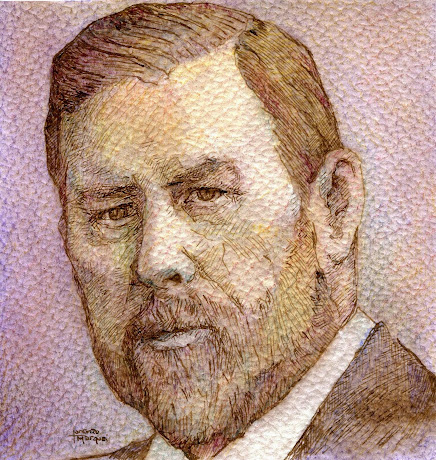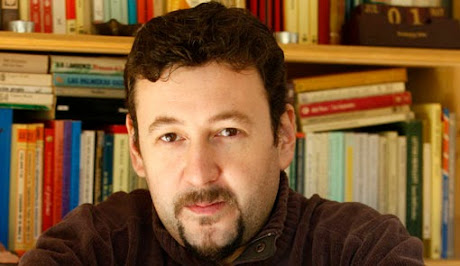 |
| http://www.javiermarias.es/ |
lunes, 16 de mayo de 2016
Broken Promises
CINCO AUTORES CON MARIO: BRAM STOKER
1. BRAM STOKER
Modesto y formal, humilde servidor de otro hombre, ensombrecido por la capa de Drácula.
El irlandés Bram Stoker (1847-1912) es uno de esos autores cuyas criaturas han llegado a ser más célebres que su creador. Drácula, uno de los personajes de ficción que más adaptaciones y actualizaciones ha experimentado, fue moldeado a partir de la leyenda de Vlad Tepes, es decir, Vlad el Empalador, un sanguinario gobernante rumano que se enfrentó a los turcos, combinada con la figura y atuendo del esquelético compositor Franz Listz.
A Stoker le tocó vivir también a la sombra de una celebridad de su tiempo hoy olvidada: Henry Irving, el actor más importante de la era victoriana, director del teatro del Liceo de Londres. Como secretario personal de Irving, las tareas administrativas de Bram Stoker (llevar las cuentas del teatro, organizar las giras de su jefe, responder la correspondencia...) apenas le dejaban tiempo para escribir. De hecho, trabajó en su Drácula durante las vacaciones, a lo largo de siete años, hasta que en 1894 se retiró a un pueblo costero para rematar la novela.
Incluso en la construcción de su más célebre novela, Stoker lució los modales de un secretario: la obra es la recopilación de una serie de cartas, telegramas, noticias de prensa, todas ellas falsas, desde luego, como si el autor se hubiera tomado la molestia de reunir la documentación existente sobre la tenebrosa anécdota de la novela: el conde Drácula decide trasladarse a Londres (recuérdese: el remilgado Londres victoriano), donde el bullicio y la sangre joven corren a sus anchas.
Stoker pidió a Irving que interpretara el papel de Drácula en el montaje teatral sobre su relato que él mismo dirigió y estrenó antes del lanzamiento de la novela. Este constituyó un sonoro fracaso. Y, de hecho, jamás volvió a representarse.
En su tiempo, Drácula provocó división de opiniones. Algunos críticos la calificaron de insufrible y otros consideraron que sus excelencias eran tantas que resultaba imposible que hubiera sido escrita por Bram Stoker, habida cuenta de su exigua trayectoria literaria. Otros la ningunearon por su adscripción a un género considerado menor por los más estirados. Aquellos sobre quienes pese semejante prejuicio deberían animarse a comprobar que Drácula es una de las mejores novelas del siglo xix. En los planes de estudio de nuestros institutos, Flaubert o Dostoievski resultan (merecidamente) ineludibles, pero se suele echar en falta a Bram Stoker, quien, a juicio de Oscar Wilde, fue autor de “la novela más hermosa jamás escrita”.
Pero incluso la muerte del desdichado Stoker fue ensombrecida por otros acontecimientos, pues coincidió con la tragedia del Titanic y apenas apareció en unos pocos obituarios de prensa.
BRAM STOKER

Por Lorenzo Marqués



No hay comentarios:
Publicar un comentario